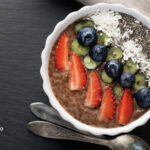Save Your Testosterone
Testosterone is a vital hormone for men, responsible for maintaining muscle mass, bone density, and sex drive. However, there are several habits and foods that can sabotage your testosterone levels. In this comprehensive guide, we will explore the habits and foods that can have a negative impact on your testosterone levels and help you to make better choices for optimal hormone health.
Habits That Sabotage Your Testosterone Levels

.
- Lack of Sleep: Sleep is essential for the production of testosterone. Men who do not get enough sleep, or who have poor sleep quality, are at a higher risk of low testosterone levels. Aim for 7-9 hours of quality sleep per night and establish a regular sleep schedule.
- Stress: Stress can have a significant impact on your testosterone levels. When you are under chronic stress, your body produces cortisol, which can suppress the production of testosterone. To reduce stress, try practicing relaxation techniques such as yoga, meditation, or deep breathing.
- Sedentary Lifestyle: Men who are physically inactive are at a higher risk of low testosterone levels. Regular exercise, especially weight-bearing and resistance exercises, can help to increase testosterone levels. Aim for at least 30 minutes of moderate-intensity exercise most days of the week.
- Alcohol Consumption: Excessive alcohol consumption can have a negative impact on your testosterone levels. Men who drink heavily are at a higher risk of low testosterone levels. It’s recommended to limit alcohol consumption to no more than 2 drinks per day.
- Smoking: Smoking has been linked to low testosterone levels in men. Smoking can also have a negative impact on your overall health, and it’s recommended to quit smoking to Improve your health and testosterone levels.
- Lack of Vitamin D: Vitamin D is essential for testosterone production. Make sure to get plenty of sun exposure or take a vitamin D supplement if needed.
- Low Zinc Levels: Zinc is another essential mineral for testosterone production. Eat foods rich in zinc, such as oysters, beef, and spinach.
- Obesity: Being overweight or obese can decrease testosterone levels. Maintain a healthy weight through diet and exercise.
- Lack of Testosterone Replacement Therapy (TRT): If you have low testosterone levels, TRT may be an option. Consult with a doctor to determine if TRT is right for you. Lack of Sexual Activity: Testosterone levels rise and fall in response to sexual activity. Men who are not sexually active may experience a decrease in testosterone levels.
- Exposure to Toxins: Exposure to environmental toxins, such as lead and pesticides, can harm the body’s ability to produce testosterone. Minimize your exposure to toxins by eating organic foods and avoiding contact with contaminated water or air.
- Excessive Cardio: While regular exercise is important for maintaining healthy testosterone levels, excessive cardio can have the opposite effect. High-intensity, long-duration cardio can lead to overtraining and decreased testosterone levels. Aim for a balance of cardio And strength training exercises.
Foods That Sabotage Your Testosterone Levels

- Soy: Soy contains compounds called phytoestrogens, which can mimic the effects of estrogen in the body. Consuming high amounts of soy can lead to a decrease in testosterone levels.
- Processed Foods: Processed foods are high in added sugars, Tran’s fats, and artificial ingredients, which can have a negative impact on your testosterone levels. These foods can cause inflammation and weight gain, which can lead to low testosterone levels.
- Vegetable Oil: Vegetable oils, such as soybean oil, corn oil, and canola oil, are high in omega-6 fatty acids. Consuming high amounts of omega-6 can lead to inflammation in the body, which can negatively impact testosterone levels.
- Dairy: products can contain high levels of estrogen, which can lead to a decrease in testosterone levels. Additionally, dairy products are also high in saturated fat, which can lead to weight gain and inflammation.
- Sugar: Consuming high amounts of sugar can lead to weight gain and inflammation, whichCan negatively impact testosterone levels. Additionally, sugar can also lead to insulin resistance, which can further decrease testosterone levels.
- High-Fructose Corn Syrup: High-fructose corn syrup is a common sweetener found in processed foods and can lead to weight gain and decreased testosterone levels
- . Licorice: Licorice contains compounds that can mimic the female hormone estrogen and decrease testosterone levels.
- Vegetarian and Vegan Diets: Vegetarian and vegan diets may lack certain nutrients that are important for testosterone production, such as zinc and vitamin D.
- Dairy Products: Dairy products contain high levels of estrogen and can decrease testosterone levels.
- Gluten-Containing Foods: Gluten can cause inflammation in the body and decrease testosterone levels.
- Caffeine: Caffeine can increase cortisol levels, which can decrease testosterone levels.
- Alcohol: Heavy alcohol consumption can decrease testosterone levels.
In conclusion, there are several habits and foods that can sabotage your testosterone levels. Lack of sleep, stress, sedentary lifestyle, alcohol consumption, and smoking are all habits that can negatively impact your testosterone levels. Soy, processed foods, vegetable oils, dairy, and sugar are all foods that can also have a negative impact on your testosterone levels. To optimize your testosterone levels, it’s important to make healthier choices when it comes to habits and diet. It is always best to consult with a qualified healthcare professional to determine the best course of treatment for your individual needs. To know about how to boost your testosterone naturally, also read “I Want More Testosterone for my Manhood’’
Reference
Testosterone and the Modern Man” by Harvard Health Publishing: https://www.health.harvard.edu/newsletter_article/testosterone-and-the-modern-man

























Recent Comments